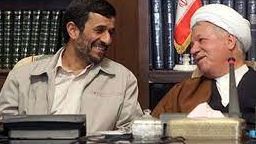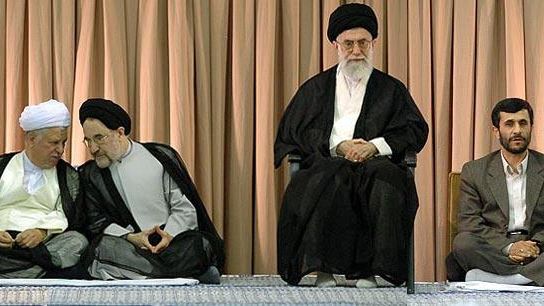Ex-President's Memoires Reveal Politics Leading To Iran's Isolation

A website in Tehran has released parts of former President Akbar Hashemi Rafsanjani’s memoirs, shedding light on the politics surrounding Iran's nuclear program.

A website in Tehran has released parts of former President Akbar Hashemi Rafsanjani’s memoirs, shedding light on the politics surrounding Iran's nuclear program.
The publication of Rafsanjani's memoires started when he was still alive, and several volumes came out during the years before his suspicious death in 2017. All the volumes thatwere published after his death were examined by his son Mohsen before publication.
According to Chand Sanieh [A few seconds) website, which first published the new, unpublished parts are about Rafsanjani's angry reaction to unltraconservative President Mahmoud Ahmadinejad's "radical behavior". Rafsanjani believed this offered “a pretext” to the United Nations Security Council to impose sanctions on Iran and form a global consensus against the Islamic Republic in 2006, one year after Ahmadinejad was first elected as Iran's President.
It was the re-publication of the memoires by moderate conservative website Khabar Online on July 10 that lent some credibility to the disclosures about the beginning of Iran's isolation in the international community as a result of its secret and controversial nuclear program.
Rafsanjani wrote on March 21, 2006, that "factional disputes in Iran and the dismissal of efficient diplomats as well as uncalculated remarks by Ahmadinejad about uranium enrichment, human rights and terrorism provided an opportunity for the United States and its allies to portray Iran as a threat to the international community."

In November, Rafsanjani wrote about his visit to the enrichment site in Natanz, adding that "Even Hassan Rouhani who is usually skeptical about these matters acknowledged that the efforts have been successful. Both Rouhani and I told -then – nuclear Chief Mohammad Aghazadeh that Ahmadinejad's uncalculated remarks hinder Iran's progress."
On December 11, Rafsanjani noted that the UN Security Council has unanimously ratified a resolution against Iran with even Qatar voting for it. "Ali Larijani [then secretary of the Supreme Council of National Security] came to see me. He was nervous and critical of Ahmadinejad because of his uncalculated remarks. He said he told the President to stop two of the enrichment cascades to avert the resolution, but he refused to do so. He has told Ahmadinejad to go and seek Khamenei's view about this."
Rafsanjani wrote on March 20, 2007: "We have a bad situation in foreign relations. We have been isolated except for relations with a few countries including Syria and Venezuela. Two resolutions have been issued against us and a third one is coming. Sanctions have been imposed on Iran anda US military attack is probable."
Rafsanjani was a major advocate of Iran's nuclear program and missile development since late 1980s when he realized that the armed forces were not capable of resisting Saddam Hussain's army. Iran's declining arsenal from the pre-revolutionary days under the monarchy and its lack of an effective air force and navy made it vulnerable in the region.
In 2006, when these parts of his memoires were written, his once deep influence in the Iranian political system had been indirectly curtailed by Supreme Leader Ali Khamenei and he was on course to his final isolation in 2009, when Ahmadinejad became Iran's President for the second time in a rigged election marked by IRGC intervention.